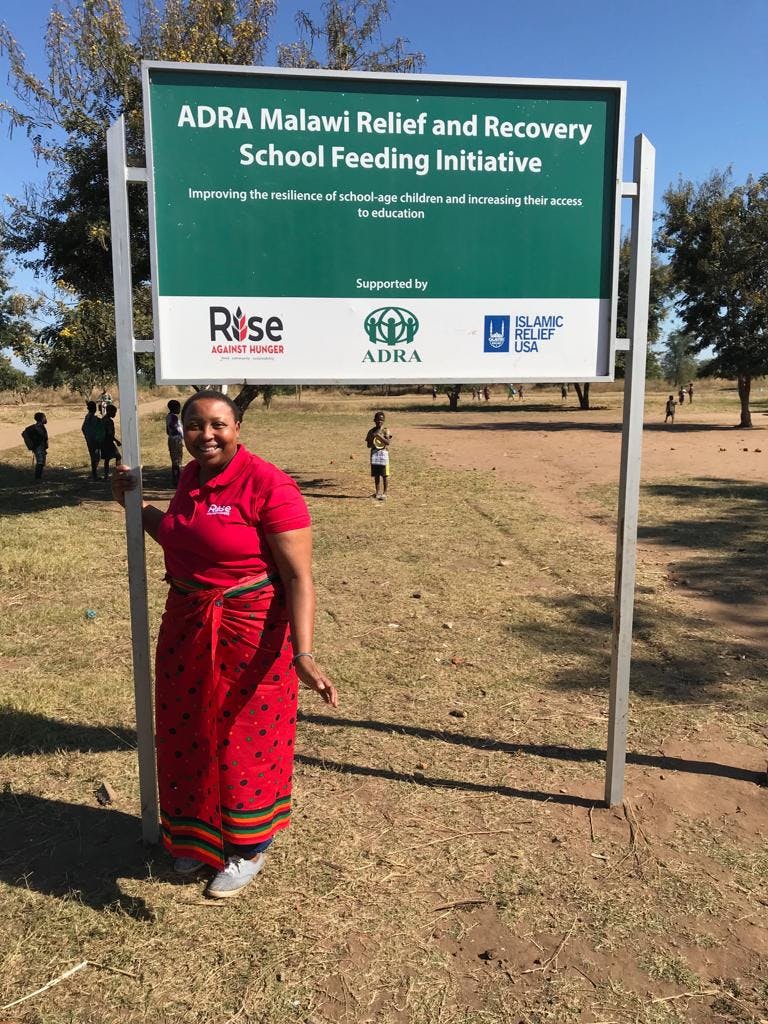School Feeding Programs are Making a Difference — One Life at a Time

In June, I had the opportunity to visit a field project in Malawi operated by our impact partner, ADRA International. ADRA Malawi implements a Relief and Recovery School Feeding Initiative through which they provide Rise Against Hunger meals to 8,479 children in five schools. I had just finished visiting one of the five schools where the children had eaten, and before I could leave, the principal stopped me, being sure to make eye contact. He said gratefully, “The work Rise Against Hunger is doing with ADRA Malawi is making a huge difference. I can see the kids in our community look much healthier than just one year ago.”

I remember standing there, letting the words sink in. Our day-to-day work experiences in contributing toward U.N. Sustainable Development Goal #2, Zero Hunger by 2030, can be frustratingly confusing sometimes, and often we feel like we are not making any progress. Here in front of me was a school principal telling me that the true measurement of the impact of the food we provide can be found in the young lives we are impacting not only for today, but for their lifetimes!
Lasting Transformational Impact
No doubt that a key takeaway is the effects of a school feeding program on the well-being of learners cannot be overstated. Through daily meals, these schools are able to meet immediate nutritional needs. Without the nourishment of these meals, these students cannot learn.
Another notable takeaway was strong engagement in community volunteerism through School Management Committees (SMC), Parents and Teachers Associations (PTA) and parents. While our meals are packaged by volunteers in the U.S., another group of volunteers across the pond in Malawi is making sure the food is cooked, children are fed and are attending school. What an amazing global village we live in with a mission of ending hunger together!

I did not need to travel to Malawi to be assured of the impact both ADRA and Rise Against Hunger is making, but the trip certainly confirmed the need for successful school feeding programs around the globe.


